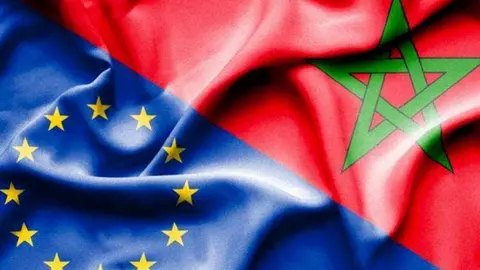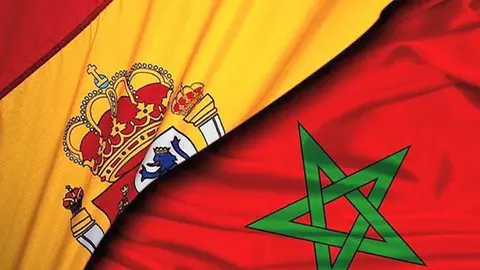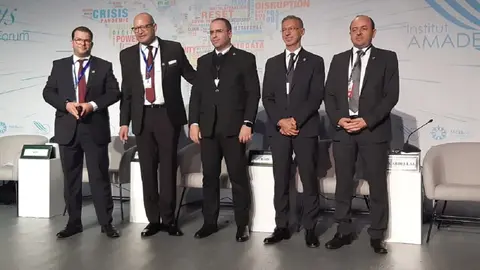Strengthening bilateral ties between Morocco and Spain
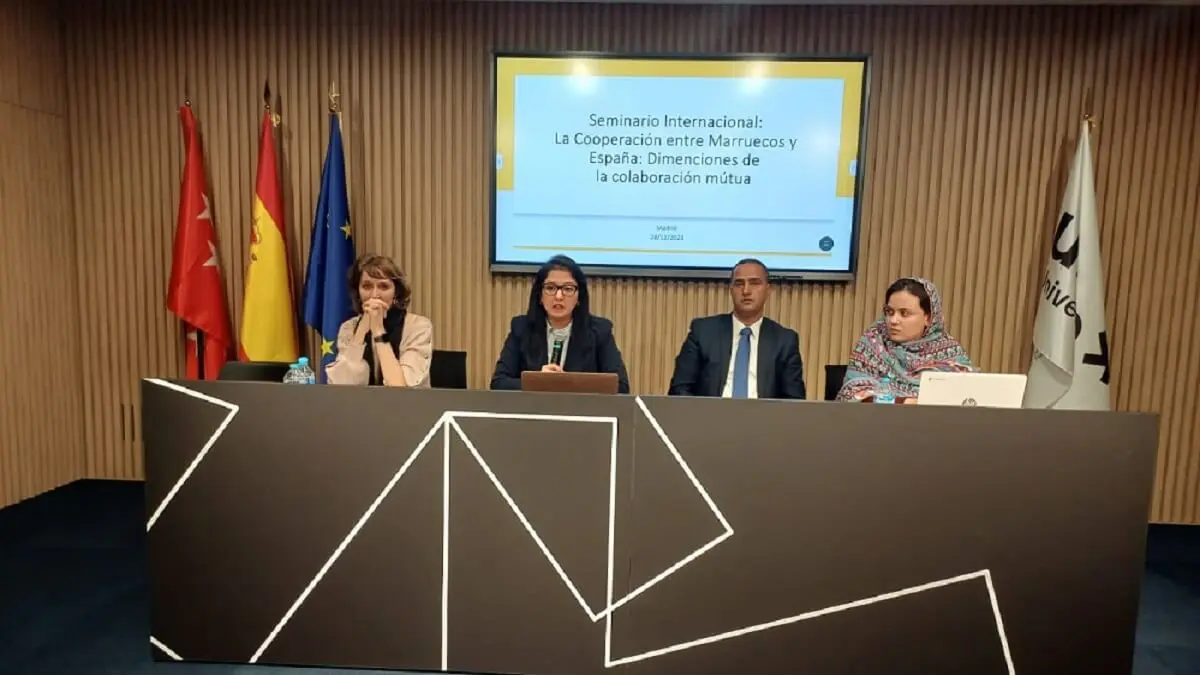
Morocco's proposal for autonomy as a real opportunity for Western Sahara and the fundamental lines of Moroccan-Spanish cooperation within the framework of international legality were some of the key issues discussed at the international seminar held in Madrid under the title "Moroccan-Spanish cooperation: dimensions of mutual collaboration".
The event, organised by the UNIE International Business University, with the collaboration of the Centro de Estudios de Iberoamérica of the Universidad Rey Juan Carlos, was attended by experts from the University of Abdelmalek Essâadi in Tangier (Morocco).
The seminar provided participants with a comprehensive overview of bilateral relations between the two countries. Its analysis explored various aspects in the geopolitical, security, business, energy and cultural spheres, using a holistic approach to understand the complex connections between Morocco and Spain.
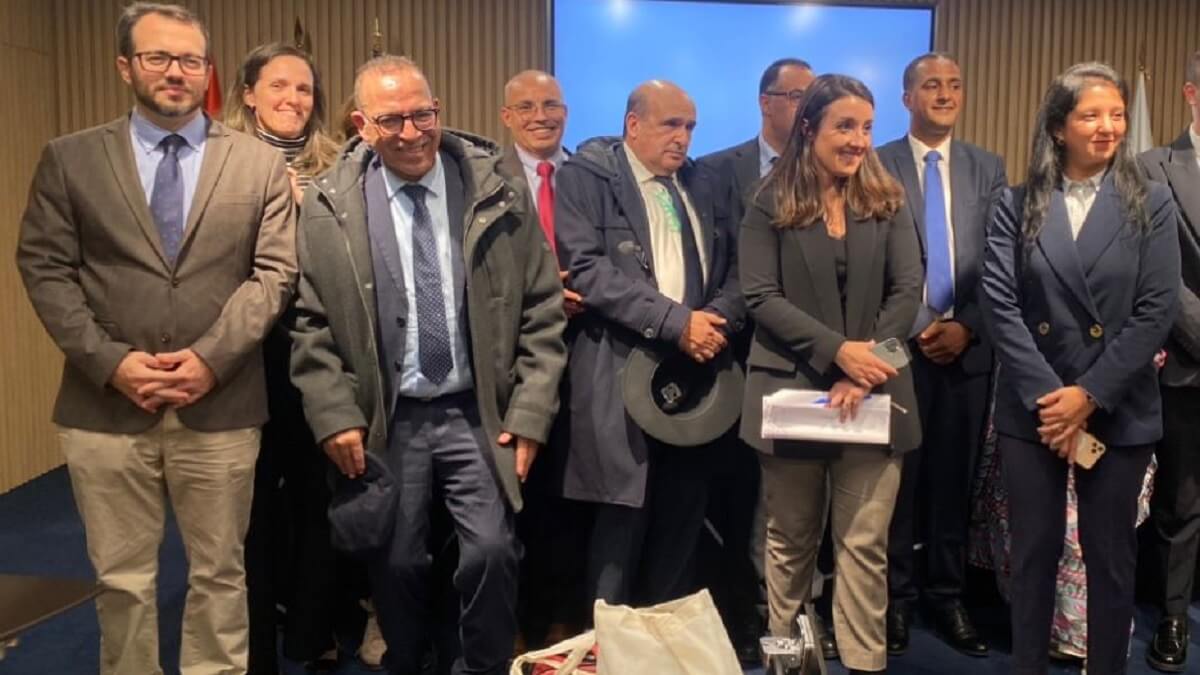
Progress in Spain-Morocco relations: in-depth analysis and positive prospects
During the conference, some speakers highlighted the progress in relations between Spain and Morocco and the emerging opportunities for both countries.
Thus, several relevant issues were addressed, such as Morocco's contribution to the democratic legitimacy of the Saharawi elected representatives or the opening of a new page in the relationship between Spain and Morocco after the support shown by Pedro Sánchez's government for the autonomy plan offered to the Sahara by Morocco.
On this point, Toufik Essaid, Dean of the Faculty of Law at the University of Abdelmalek Essâadi in Tangier, expressed his perspective on the situation in the Sahara, arguing that the holding of democratic elections throughout the Moroccan territory confers legitimacy on the democratically elected representatives in the Sahara's provinces. According to his analysis, this could pave the way for a political solution that would allow the people in the Tindouf camps to benefit from the development that the region is experiencing. He assured that progress in relations between Spain and Morocco is moving forward on a more solid and firm basis since Spain's recognition of the Moroccan autonomy plan as a serious and credible basis. He also indicated that Morocco has taken great steps towards this autonomy with the extension of the powers of elected representatives in the context of regionalisation and advanced autonomy.
For his part, Ahmido Aboulas, Vice-Dean of the Faculty of Legal, Economic and Social Sciences at the same university, stressed the common interests and objectives, as well as the role of both countries as strategic allies in a very sensitive geopolitical context. He concluded that these relations are being strengthened, especially after the support shown by Pedro Sánchez for the autonomy plan for the Sahara, offered by Morocco.
He asserted that the Moroccan autonomy proposal represents a serious and credible opportunity for the region within the framework of international legality and on the basis of agreements in line with the objectives set out in the UN Charter.
On the security dimension of the Sahel and the Mediterranean basin, Shaibata Mrabih Rabou, Vice-President of the Provincial Council of Tarfaya and PhD student at the Ibn Zohr University in Agadir, and Mehdi Essarsar, Professor of International Law at the Abdelmalek Essâadi University in Tangier, agreed on Morocco's key role in the stability of the Sahel region. They affirmed that Morocco continues to denounce the instability of the security situation in the Tindouf camps as a threat to the entire region, including the European Union. They also assured that the socio-economic development of the Moroccan Sahara region guarantees stability and development with an impact on the stability and development of the whole region.
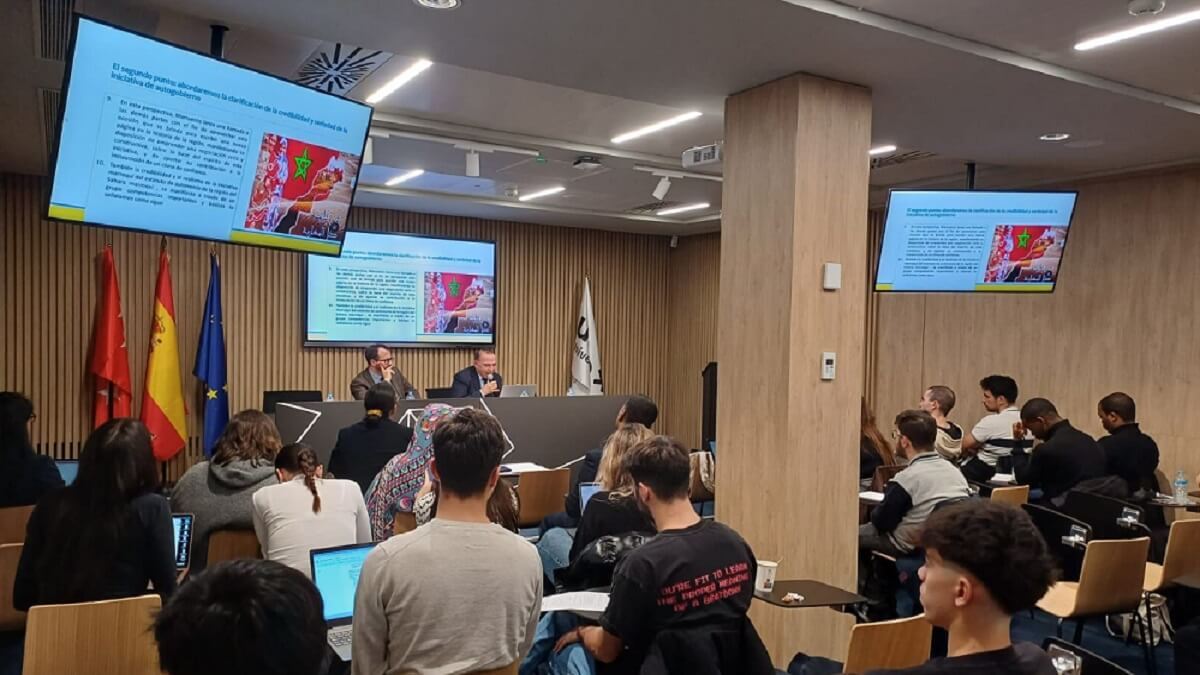
Migratory flows in the Mediterranean and threats to stability in the Sahel region
On Morocco's role in the management of migration flows in the Mediterranean, Sarra Sefrioui, Professor of Law and International Relations at the Faculty of Legal, Economic and Social Sciences of the Abdelmalek Essâadi University in Tangier, said that Morocco plays a crucial role in the migration landscape by addressing integration challenges, security issues and economic opportunities. He also highlighted its efforts to develop policies that manage migration, including border protection and control of flows to Europe, while ensuring the rights of migrants and their right to a dignified life.
Present and future investment opportunities in Morocco's provinces
Zineb Ramdan Buhari, a PhD student at the ENCG (Ecole Nationale de Commerce et de Gestion de Tanger) and an entrepreneur in the city of Laayoune, highlighted how the great wealth of Morocco's southern provinces, which include some of the richest fishing waters in the world, as well as opportunities in agricultural development and mining, offer a robust basis for economic growth.
The synergy between state and private investment in the area has already proven to be a strategic combination, capable of boosting economic growth and ensuring the well-being of the local population.
Energy cooperation between Spain and Morocco
Sagrario Morán Blanco, Professor of International Relations at the Faculty of Law and Politics at the Rey Juan Carlos University in Madrid, stressed during her speech the historical importance of energy cooperation between Spain and Morocco, which has been evident since the construction of the Maghreb-Europe gas pipeline in 1996 and the installation of the first submarine cable in 1997.
Morán argued that energy has been a key area for bilateral collaboration. Following Morocco's commitment to renewable energies in the midst of the energy transition, it is to be hoped that more sustainable energy trade between the two countries will gradually replace fossil fuels.
A cultural relationship spanning more than thirteen centuries
Cástor M. Díaz Barrado, Professor of International Law at the Faculty of Law and Politics of the Rey Juan Carlos University in Madrid, recalled the Treaty of Friendship, Good Neighbourliness and Cooperation between the Kingdom of Spain and the Kingdom of Morocco (1991) and the Cultural Cooperation Agreement between Spain and Morocco (1980), which corroborate the common cultural heritage resulting from a close interaction of more than thirteen centuries, and which has left its mark on both countries as well as on universal culture.
The cultural relations between the two countries are the seed of a Spanish-Moroccan cooperation that has reached many other fields for the benefit of the populations on both shores of the Mediterranean.
About Abdelmalek Essaâdi University
Abdelmalek Essaâdi University is a public Moroccan university created in 1989. It is considered as the main university in the north of the Moroccan kingdom. It covers the fields of science, law, economics, arts and humanities, science and technology.
About UNIE
UNIE International Business University is a private university in Madrid that offers an official academic offer connected to the contemporary social and economic reality.

